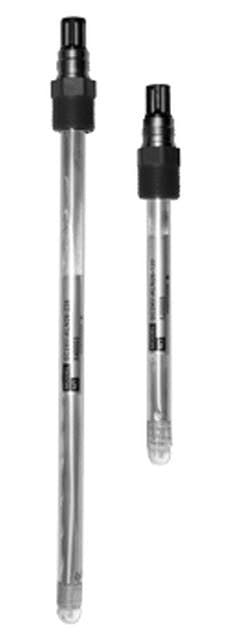pH Measurement Sensor Integrates Four Functions
Yokogawa Corporation of
These problems, most of which relate to the reference cell, are caused by a combination of high diffusion potentials at the reference junction, the high temperatures encountered in chlorinated brine- related processes and high ground-loop currents in the pH sensor circuits. The new sensor features a sealed glass reference cell, which prevents fouling and ensures measurement stability as well as being virtually maintenance free.
In the SC24V differential pH sensor, the reference cell is hermetically sealed in glass, with no porous junction. No electrolyte is in contact with the process, so the sensor does not suffer from diffusion potentials. The result is a very stable linear voltage output over a typical range of 2-14 pH. It also means that the sensor will operate successfully with minimal maintenance requirements under conditions of high pressure and temperature, or in the presence of corrosive materials. The only wetted materials are platinum and glass, so the unit has a high chemical resistance as well as being sanitary in use.
Because the sensor integrates four functions in one -- pH sensing, reference cell, temperature compensation and liquid earth (ORP), the user only has to deal with one sensor and one cable. The unit is designed for 12 mm PG13.5 mounting, but with the addition of an adapter the SC24V is compatible with most industrial holders. In addition, the SC24V is the most maintenance free pH sensor in the market today. The sensor can also be used for ORP/Redox control applications.
